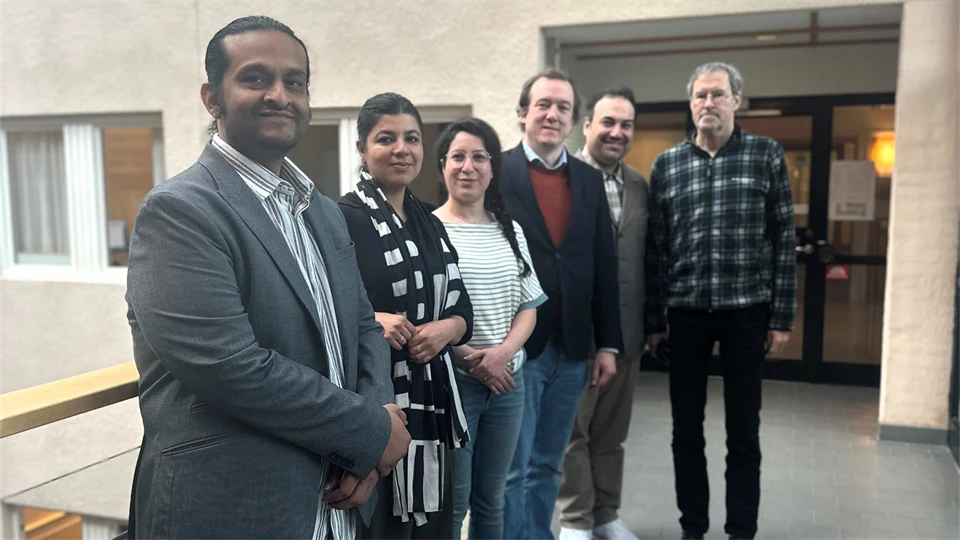Dr. Imtiaz Sifat deepens research ties with CER during Erasmus+ visit
For two weeks, CER has had the privilege of having Assistant Professor Imtiaz Sifat visit from Radboud University in the Netherlands.
This visit, conducted within the Erasmus+ framework, marks the second academic exchange between Dr. Sifat and CER's research group—following his initial participation in CER's FinTech Symposium approximately one year ago.
"This return visit has been exceptionally rewarding," notes Dr. Sifat. "We've made significant progress discussing future doctoral collaborations and joint research initiatives."
Dr. Sifat's research portfolio encompasses financial ecosystems, decentralized corporate structures, and the critical examination of executive misconduct across private and public sectors—specifically in environmental and labor law violations, sexual harassment cases, and non-financial misconducts. His data-driven analyses show distinctive patterns regarding permissive corporate cultures that systematically enable misconduct.
"Among other things, the research fundamentally concerns organizational recruitment patterns—the kind of people organizations attract in the upper tier C-suite—board composition strategies, and the overarching Code of Conduct that permeates the enterprise," Dr. Sifat explains. "Corporate leadership behavior typically reflects the prevailing organizational culture rather than individual moral frameworks."
During his visit, he also presented his working paper "Marital Status and CEO Dismissal" at the CER Higher seminar. This research documents differential dismissal rates associated with executives' marital status and examines interactions between personal characteristics and company performance metrics. His findings indicate that single (non-married) CEOs are more prone to dismissal than married counterparts irrespective of firm performance. It appears that organizations may deem non-married leaders less stable or reliable, possibly due to perceived implicit biases like flight risk, (im)maturity, excessive risk taking, etc. It is also possible that boards tend to view favorably leaders whose characteristics match theirs—i.e. married. This is known as homosocial reproduction. These results challenge the conventional wisdom that CEO dismissal results largely from meritocratic and firm performance issues.
For additional information about Imtiaz Sifat's research portfolio: https://www.ru.nl/en/people/sifat-i
